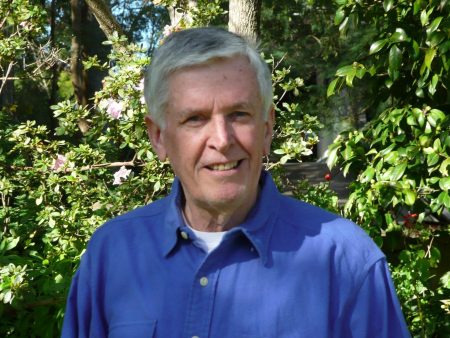JOHN TULLOH: Vladimir Putin reaches back to the past to define his and Russias future.
September 13, 2016
Tsar Vladimir Putin plots his place in Russian history**.**
It would appear that Vladimir Putins current modus operandi is aimed at defining his legacy. Ideally, he would like to be remembered as Vladimir the Great, the most illustrious Russian of his times. As those with the same honorific, Peter and Catherine, did, he is busy expanding his influence and trying to restore Russia to the feared and formidable country and head of an empire it once was.
Until now, he is more likely to be remembered as Putin the Not So Great - at least, outside Russia. He has cowed the Russian media, brutally crushed unrest in the Caucasus in 1999, invaded and annexed Crimea in 2014, carved up east Ukraine for himself, has been implicated in the execution of opponents in Russia and abroad, has had his jet fighters roaming the skies of Syria in support of Bashar al-Assad, an accused war criminal, and has been blamed by the UN for many of the thousands of civilian deaths there. All in all, it is a blood-thirsty report card unless youre a hardline Russian nationalist which Putin is.
But now come two developments to soften that international image. One is his offer to chair what for years has been a hopeless cause, the Israeli-Palestinian peace talks (see footnote). Until now, they have been the prerogative of mainly Western interests. Putin has decided to cock a snook at the latest initiative, led by France, which has gone nowhere. The other development is Putins startling embrace of the Russian Orthodox Church. It was not that long ago when part of Putins old KGB responsibilities was the suppression of religion. Now the Russian Orthodox Church could be his salvation.
Orthodox religion has returned to life throughout the old Soviet empire. Russia alone has an estimated 150-million adherents. What better way to remembered with reverence than by making yourself the de facto protector of their faith? Whats more, there are another 50-million Orthodox followers in eastern and south-east Europe to whom Putin also could make his protective presence felt.
All this explains his new favourite site of pilgrimage, the Holy Mountain of Athos, a tiny peninsula in Greece on the Aegean Sea. It has been the home of Orthodox monks for 1200 years since the Byzantine Empire. According to Time, Putins strategic vision today is a revival of one in which tsars and priests, not communist apparatchiks, define Russias role in the world. Through his visits to Mount Athos, Putin has evoked that era of Russian imperial power, signalling how central it is to the legacy he wants to build, it adds. On his latest visit, the Tsargrad news agency, a Putin propaganda arm, gushed that he was allowed to sit on the throne where only Byzantine emperors sat in the past. Fawning speeches were made and, as Time noted, Putin seemed to feel right at home.
He may well have reflected on his namesake, Saint Vladimir the Great, who ruled Russia a thousand years ago. He was once a pagan with many wives and concubines before deciding to convert to Christianity. His rule was centred in what today is Ukraine. Little wonder that Putin justified his Crimea annexation as taking back land of sacred importance. Russians basked in patriotic fervour. Putins popularity soared despite the imposition of US and EU sanctions and the economy being in bad shape.
Earlier this year, Putin decided another good idea politically would be for the head of the Russian Orthodox Church to meet the Pope. It caused apoplexy among the Orthodox conservatives. But, as always, Putin got his way. It was the first time the heads of the two churches had met since ties were severed in 1054. Their joint declaration urged the international community to stop the massive exodus of Christians from Iraq and Syria. It demonstrated the importance of Russia to the world as a defender of Christians everywhere, noted Sergei Chapnin, the former editor of the Russian Orthodox Churchs official journal.
It is difficult to interpret the motives of a leader like Putin whose visage is as inscrutable as that of the classic Russian doll. It is unlikely that hes had a religious epiphany. Theres no such thing as ex-KGB, a Russian monk on Mount Athos was quoted as saying. Each man has to answer for his sins. But Russians, long accustomed to hardship, have always admired a tough leader willing to flex Russian muscle. Vladimir Putin with his well-known bare-chested heroics is one. His grand plan to revive the influence of Mother Russia with himself as the undisputed 21st century tsar may well help him fulfil the legacy he seeks.
FOOTNOTE. Russia has strong ties with Israel, a country which has always been associated with its close bonds with the US. More than 13% of its population are Russian, thanks to the emigration waves in the past three decades. After Hebrew and Arabic, Russian is the most commonly-spoken language in Israel. Moscow has the largest Israeli expatriate community in the world with 80,000 citizens there. More than 400,000 Russian pilgrims visited Israel in the latest annual count. Russia was the first country after the US to recognise the founding of Israel in 1948. (In 1988, it led the way in the recognition of a Palestinian state).
Israel sells drones to Russia and the two countries have bilateral agreements concerning space, nuclear technology, encrypted communications and visa-free travel. But helping find a peace settlement with the Palestinians is another matter altogether.
John Tulloh had a 40-year career in foreign news.
